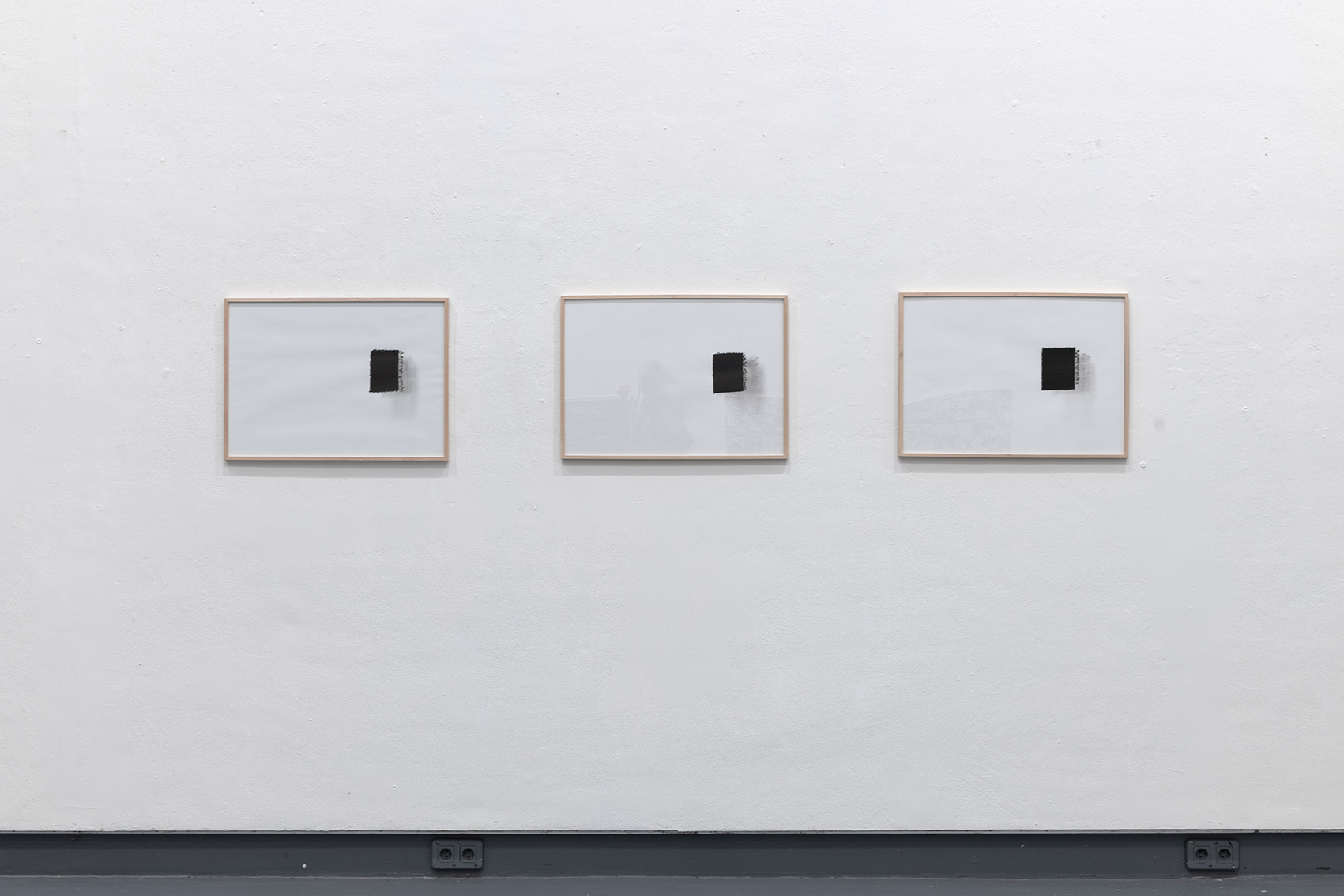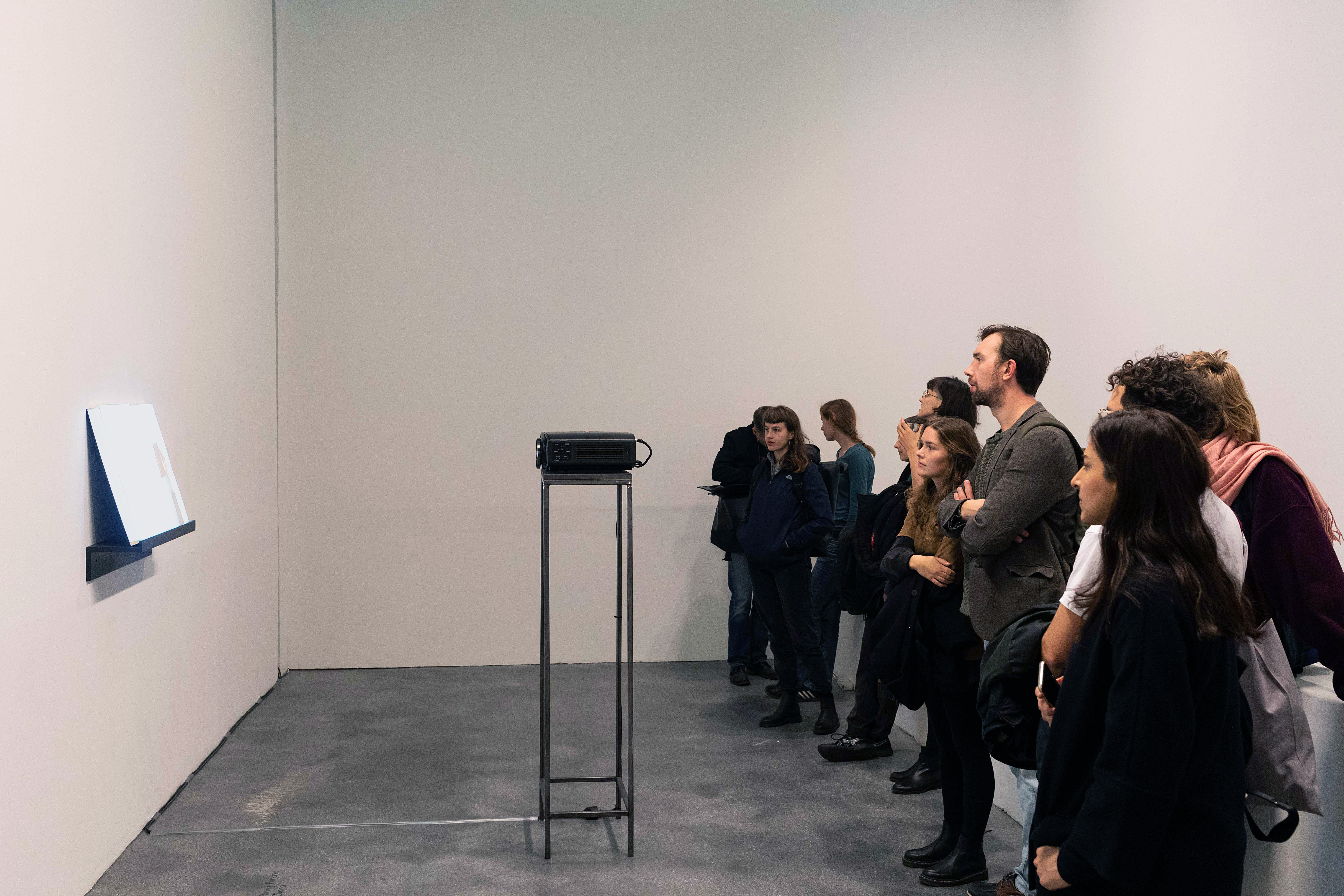Zipora
Video installation, color video (107:22 minutes loop), ink on papier, 2019When I was twelve, I asked my grandmother, Zipora, to write for me her life story. We never talked about what she wrote. Years after she passed away, defeated by Alzheimer's disease, I re-read those pages and realized that although the story is clear – I do not understand. Questions that could no longer be answered, arose. Trying to understand, I repeated my grandmother’s story in my own handwriting, word for word.
The work is of constant repetition: the writing of the story comes to an end, but the questions are not answered. Nothing becomes clearer, and the writing begins again. The questions reappear over and over again when I write, as if I was hearing the story for the first time.
Writing erases itself. Memory cannot be passed on in form of a story. But the words must be written as they are, not as conventional signs for meanings, but as shadows.
Memory and trauma
The work deals with memory and remembrance, with the limits of language and with the vain attempt of trying to understand what is beyond comprehension.
Dealing with the question of memory, some feel that when a catastrophe is too big to grasp, the only way to approach it is to turn to the personal story, to a "Zeitzeuge". I believe, however, that the personal experience is even more impenetrable. While stories can be shared, the lived experience and the trauma are inherently out of our reach.
In my attempt of getting closer, I'm assuming my Grandmother's position. It is my hand that is writing her words. But it does not get me closer to her. The desperate, obsessive, attempt to approach her with writing and with the repeating questions lead into deeper and deeper darkness. The facts, the dates, the course of events, become a black hole.
The blackening of the paper with unreadable text alludes to this paradox of passing on memory with language, but also to the woman that was my grandmother, to her life as a survivor haunted by memories she could not bear, until oblivion overtook her.
Fear of forgetting
The book is written-in, like a in a privet diary. Its proportions, however, allude to an encyclopedia or an atlas – media of passing on knowledge, make it accessible for other people, for next generations. It is supposed to keep memory. In it, memory is supposed to last. But in my work the testimony written in the book is nothing but air and light. It is doomed to fade and disappear.
The public and the private are both present here. The work confronts the viewer with the fear of forgetting, and so of betraying the ethical and political command: “Remember!”. It also echoes the deterioration of my grandmother’s tormented mind, which had to relive her horrid childhood due to the progression of Alzheimer's disease, until that, too, was finally forgotten.
The installation
The work is a video, projected on a blank-paged book (50x70 cm when opened). The video, shown in a loop, begins and ends in white – in those moments the projector serves as a lamp, shedding light on the empty book.
The footage on the right page of the book is of a woman’s hand, writing in Hebrew.
The words are written and immediately gone over by the writing hand, thus rendering the text undecipherable. Writing repeats over and over on the same page, creating a dense black square. On the left page of the book, corresponding to the audio, questions appear and vanish. As the story comes to an end and the writing stops, the black square fades into white and the book pages are left white and empty, only to begin again.



Exhibition view: Studienpreis des Freundeskreises der HGB und der Sparkasse Leipzig 2019
(photo: Alexander Meyer)